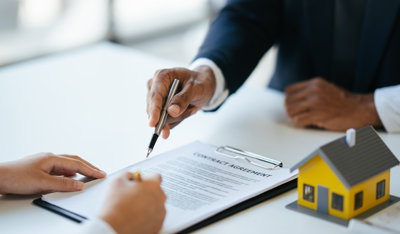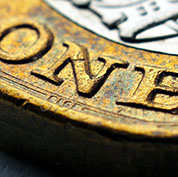Where can my mortgage deposit come from?

Purchasing a property is probably the biggest expenditure you’ll ever make. To keep your monthly payment as low as possible you’ll want a large deposit. The bigger the deposit the lower the risk for the mortgage lender and the lower the interest rate they’ll be prepared to offer. Bigger deposits even make it possible to shorten the term of your mortgage.
Of course, the average UK property price is £285,000, the minimum deposit is usually 5%, which means you’ll need a £14,250 deposit. Here’s where you can find that.
Fund your deposit from personal savings
Creating a savings habit is an excellent idea as it will provide you with funds to cover unexpected expenses or help with retirement plans. If you have saved enough, you can use your personal savings for your deposit. It’s a good approach as you can start mortgage life without additional debt.
To help save a deposit and an emergency fund for the future get in the habit of putting money into a savings account as soon as you’re paid. Decide on a percentage and transfer it, you won’t miss what you don’t appear to have! It’s also a good idea to create a budget and streamline your expenses, maximising what you can save. In addition, speak to us, as mortgage specialists we can help you plan your finances and secure you the best deal. As we like to say:
Leverage gifts and contributions
Your family and even friends can gift you all or part of your deposit. That means You’ll need to properly document the donation as mortgage companies have a duty to confirm where funds have come from. It will need to be declared on a tax return. Gifted deposits up to £3,000 per year are tax free and your allowance can be carries over from a previous year. Over this, the donation will be subject to inheritance tax, although this only applies if the gift-giver dies within seven years of gifting you the deposit.
Borrowing for deposit - pros and cons
You can secure a loan for the deposit on your home, although not all lenders will agree to this. Borrowing will speed up the process of you purchasing a property because you won’t need to spend time saving a deposit. However, taking out a loan means you have a debt that needs to be paid monthly. Your mortgage lender will consider this and reduce the amount of funds they are prepared to lend. That could make your desired property unaffordable.
Boosting your buying power with government schemes
The government has several schemes that can help you buy your first property. If you’re over 18, a first-time buyer, earn less than £80,000 a year, and can afford a mortgage for half the property value, you can apply for the First Homes scheme. It allows you to buy designated properties for between 30-50% less than their market value.
Another way to improve your buying power is by investing in a Help-To-Buy ISA. The government will add a 25% bonus to your savings up to £1,000 every year. Start saving today and you could have a good deposit in just two or three years.
Another option is to buy via shared ownership. This is when you have a mortgage on part of the property and rent the rest. You’ll need a smaller deposit to get into your own home.
If selling a property, use your equity
When you sell an existing property to buy another it’s normal to use the equity in your house as a deposit. You’ll need a mortgage statement to confirm available funds. The completion of your property purchase, and the lending of funds, will be reliant on the sale of your old property.
Liquidating your investments and assets for deposit
If you have stock investments, an expensive car, or some other high-value asset, you can sell (liquidate) them to raise deposit funds. However, it can also reduce your future wealth, especially if the investment were to experience significant growth. You’ll need to carefully weight up whether this is a good idea for you or not.
Food for thought
Purchasing a property is a big financial commitment. You need to be fully aware of all the options and implications. It’s advisable to get professional assistance: contact us for a consultation today!
Reach your homeownership dreams with Moneysprite's mortgage advisers
Explore the most optimal mortgage terms available with our professional mortgage advisers and take a confident step towards homeownership. Call us today at 0345 450 4660 and get the a-to-z guidance and the most suitable terms possible for your mortgage.
From Our Blog
Stay up to date with us

Can I get a mortgage if I'm on a zero-hour contract?
Getting a mortgage on a zero-hour contract is absolutely possible.
Read More >
The pros and cons of using a limited company for Buy-to-Let
Thinking about getting into property? You're probably wondering whether to buy your rental properties in your own name or through a limited company.
Read More >
A guide to ethical investing
Making your money work for you doesn't mean you have to compromise on your principles.
Read More >
A guide to Joint Borrower Sole Proprietor mortgages
A Joint Borrower Sole Proprietor (JBSP) mortgage is where someone adds a friend or family member's income to their mortgage application, so they can increase their borrowing capability without forking out for a larger deposit.
Read More >Make an Appointment
Send a request and we’ll schedule a meeting





